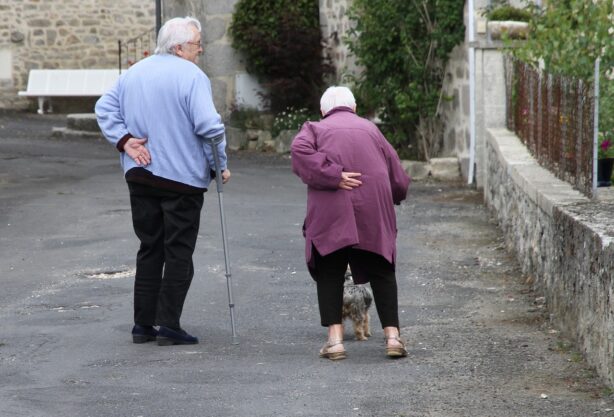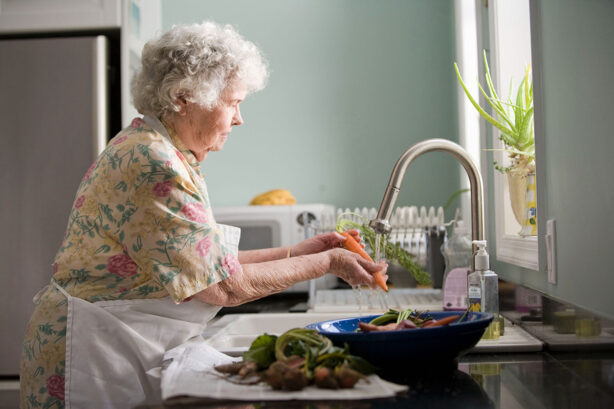One of the biggest challenges of aging, for both elderly parents and their loved ones, is a loss of mobility.

The decline may be gradual or sudden, but adjusting to mobility issues is something that takes time and consideration.
If your elderly parents are currently struggling with mobility issues, consider these four tips to help ensure the impact of reduced mobility is as minimal as possible.
Physical Mobility Enhancement Programs
Physical mobility enhancement programs can be an essential element of elderly care, designed to maintain, and even improve the physical capabilities of older adults.
These programs typically include tailored exercise regimens aimed at enhancing strength, balance, and flexibility.
For instance, water exercises for joint pain let elderly adults currently dealing with mild to moderate joint pain still build their strength and flexibility in a low-impact workout.
If needed, assistive devices such as canes, walkers, and wheelchairs may also be introduced and taught to seniors to facilitate safe movement.
These comprehensive programs are vital for promoting independence and enhancing the overall quality of life for elderly individuals.
Fall Prevention and Safety Measures
Fall prevention and safety measures are generally quite easy to implement, and are incredibly useful for ensuring a safe living environment for elderly loved ones.
A comprehensive approach begins with a basic risk assessment to identify potential hazards within the living environment.
Education is key, so research necessary strategies your parents can use to minimize fall risks. A simple change in footwear, for example, can enhance stability and reduce the likelihood of slips or stumbles.
Medication management may also be a consideration, with a focus on reviewing and adjusting prescriptions that may impact balance or coordination.
Finally, if needed, home modifications such as grab bars in bathrooms or non-slip flooring may be installed.
By implementing these measures, caregivers can significantly reduce the risk of falls and injury to elderly loved ones.
Social and Emotional Support
After a loss of mobility, ensuring your elderly loved ones have social and emotional support becomes especially important to their overall well-being.
Encourage your parents to engage in social activities to help ensure that, even with reduced mobility, they have a sense of purpose and connection.
Support groups can also be helpful, as they bring individuals facing similar mobility challenges together to provide a platform for shared experiences and coping strategies.
Depending on how limited your elderly loved one’s mobility is, caregivers can also play a crucial role by assisting in day-to-day tasks that let your parents maintain a comfortable quality of life.
Nutrition and Health
Good nutrition can play a surprisingly important role in overall mobility for aging loved ones.
Ensuring that your elderly parents are eating a balanced diet that includes plenty of fresh fruits and vegetables, lean protein, and fiber will help optimize muscle and bone health.
Optimal nutrition for elderly people also involves maintaining proper hydration. Dehydration can cause muscle cramps and fatigue, which then limits mobility.
Routine health check-ups are also important in order to detect and address underlying health issues that may further affect mobility.

Reduced mobility can be a difficult adjustment for many elderly people. That’s why finding effective strategies to ensure a high quality of life is so important.
With some simple changes to your loved one’s daily routine, home, and diet, they’ll be better able to deal with mobility issues and maintain optimal health.
And that will empower the older adults you care about to live healthier, more fulfilling lives while maintaining their independence and safety.

Thank you for the blog! I think it’s important to let your parents ask you when they need help and be available for them when they do ask. Lately my mom who is 83 has been asking me to drive every now and then. I live at home with my parents so they do ask for favors like opening up jars or reading off medication bottles. I also do chores around the house and run errands with my mom. I go with them on their appointments. It is a blessing to me to be able to take care of them.